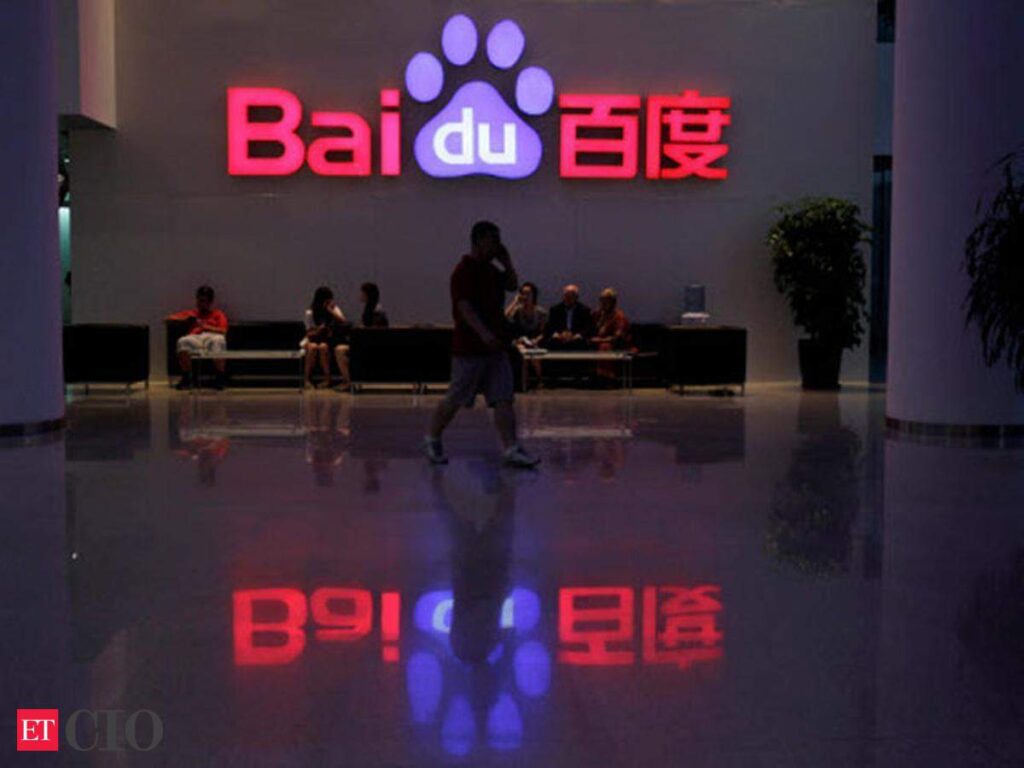According to IBES statistics from Refinitiv, total sales increased to 33.09 billion yuan ($5.24 billion) in the fourth quarter ended Dec. 31, exceeding analysts’ expectations of 32.22 billion.
Baidu’s core businesses, which include search and AI cloud services, saw a 12 percent increase in revenue to 25.98 billion yuan.

Advertising revenue increased 1% to 19.1 billion yuan, while non-advertising revenue increased 63 percent to 6.9 billion yuan, primarily due to its cloud business.
Baidu has also increased its investment in self-driving technologies, which it has been developing for the past five years.
Baidu began charging fees for its Apollo Go robotaxi service on public roads in November, after receiving authorisation for commercial operations of its self-driving cars in Beijing. In total, Apollo Go provided roughly 213,000 rides during the quarter.
Baidu also makes money from its self-driving technologies by selling its Apollo system to automakers like Volvo and Ford, both of which are owned by Geely.
Baidu CEO Robin Li announced in a conference call that the business will give its Apollo Navigation Pilot services to BYD, one of China’s largest electric vehicle (EV) manufacturers.

In the third quarter, Baidu’s net income declined to 1.72 billion yuan, or 4.51 yuan per American Depository Share (ADS), from 5.17 billion yuan, or 15.05 yuan per ADS, a year before.
Higher expenditure, promotional marketing, and personnel costs resulted in a 27 percent increase in selling, general, and administrative expenses, according to the corporation.
Baidu’s stock surged 3% in premarket trading on the New York Stock Exchange.
($1 = 6.3121 Chinese yuan renminbi)





